Future Guardian,
Well turns out, with the longer days, and summer almost upon us, my mind really wants to be on vacation.
So,
For this week I've invited two philosophers to have a discussion and take care of today's article for me.
They are Max Prudence and Jack Gamble, and they are tasked with helping you understand one simple question that will guide you in identifying where you are wasting your personal resources the most, thus vastly increasing the likelihood that you get what you want in life.
(These two can be a bit … saucy with each other … but they do have a way of working things out)
Sound good?
Take it away fellas …
Max Prudence: Ok so, we need to write an article about this idea. How do we start it?
Jack Gamble: Are there any good stories for this?
Max Prudence: Right that's a good idea, we need a good story.
Something entertaining.
Jack Gamble: Yea with wizards! And dragons!
Max Prudence: No no, not that wild.
Jack Gamble: With transformers and explosions!
Max Prudence: ... No that's even more ridiculous ...
Jack Gamble: With anime! and flowing cloaks! and excessive wind blown hair!
Max Prudence: Hmmm ... I like where you're head's at, but that won't work either.
Look, I did some digging
And theres really no entertaining story for this.
Jack Gamble: I don't believe it.
Max Prudence: Ok well,
There are actually tons of parables and myths and the like throughout the known years of history which all point to this lesson.
Yet,
Even though we've known the truth of this for thousands of years,
We still don't pay attention.
Jack Gamble: Why is that?
Max Prudence: Because of one painful truth.
This is boring.
Jack Gamble: oh. yea I don't like that.
Max Prudence: Which is precisely why we are in the state we're in.
But there's no way around it.
So.
Let me bore you with a lesson so painfully simple, if you finally accept it, will lead you to the greatest joy and happiness in your life.
BUT
One caveat.
By following this path,
You will most likely either feel GUILTY …
Or AFRAID.
(Or possibly both)
Jack Gamble: Great. now I'm really excited.
Max Prudence: I can tell. Let's begin.
++++
This is a lesson in how to stop wasting your time doing things you think you should or need to be doing. To identify what you are spending your time and resources on which is NOT increasing the likelihood of you get what you want.
First ...
Resources
It's all about the resources.
We only have so much time, money, energy, etc.
This is obvious ...
But for some reason we either forget, or ignore the fact that we are limited like this.
Jack Gamble: But I'm better than anyone! I'm special! I can do more than anyone else! I can do more than I think I can! I'm the most powerful amazin-
Max Prudence: Yea yea. you're a special flower. Now shut up and listen
Even the best in the world at doing what needs to be done to win acknowledge this.
Take Dr. Jeff Spencer.1
If you've learned what The Champion's Perfect Day looks like, you'll realize that in any given good day, you only have a few hours of time (maybe even just a couple) where you are your most powerful. And that only works well if you balance everything else out properly.
Jack Gamble: but ... me ... special
Max Prudence: *pats head*
This isn't about making your day perfect though, let's zoom out.
Your day is just one piece of the puzzle. The point is that you have limited resources across the board, and every time you choose to do something you expend those resources.
Some of those resources you can recover strategically. Like your actual physical energy. Or money.
But most of the time your resource expenditure and recovery is bound by the one resource you can never recover:
Time.
Jack Gamble: You mean ... WE'RE ALL GOING TO DIE!!?!?!?
Max Prudence: uh. yea. duh.
But forget about dwelling on the end. Recognize that the time you have is limited, finite. And you don't know what that limit is.
So ...
Respect it. Respect that resource.
Now,
Every time we commit ourselves to an action, a decision, a project ... whatever … we are committing a certain amount of that finite resource, and we cannot use that resource on anything else.
Jack Gamble: Yes thank you I know how using resources works
Max Prudence: Alright well, you sounded confused and full of yourself so I thought it reasonable to be crystal clear.
Jack Gamble: Ok hot shot, how about this: Time goes by whether we like it or not so we use it whether we like it or not! Hah!
Max Prudence: ...
That is true.
Which is why instead of thinking in terms of whether we use the resource, or how much we use the resource,
We think in terms of whether the way we use that resource is more or less likely to get us what we want in life.
Or put another way, it's about risk. Are you increasing or decreasing the risk of getting what you want? Because time passes, we use our energy, money, etc regardless. So what we use it all on and why is the thing to scrutinize. And what better way to scrutinize our ability to get what we want, then look at the risks we accept in not getting it.
Which is also why we like to use The Barbell to assess how we allocate our resources, how that impacts our risk, and whether the way we do things increases or decreases the likelihood of us getting what we want.
The Barbell
Jack Gamble: Are you really about to lecture me on the Barbell?
Max Prudence: *puts away laser pointer and projector*
Well I certainly am going to give you a short explanation, and then if you find it useful I can tell you where to go to learn a lot more.
Jack Gamble: *rolls eyes* fine, proceed
Max Prudence: Thank you for your permission. I see you still haven't given up the idea that you're more special than anyone else ...
The Barbell framework can be talked about in a few different ways. Primarily we use it as a tool for assessing resource allocation and risk.
One of our favorites is Reliable - Upside.2
On one end are the things you have and do which are Reliable - you are certain of their outcome when a specific minimal amount of effort is put into them. Your risk is minimized through certainty. Minimal risk, certain outcome of "enough."
On the other side are the things which have massive Upside - you are not certain of their outcome, but the exchange is that you put minimal risk into them, and if they do produce an outcome it's so wildly outsized as to change everything about your situation for the better. Minimal risk, maximum but uncertain result.
Most people end up somewhere in the middle. They take the certain thing that is "enough" and reliable and start to do more with it (making it less certain), or they take the thing that has minimal risk applied to it but with massive upside and start doing more with it (increasing risk).
Or they can't get either something reliable or something with massive upside at all to begin with.
No matter what, they end up in the middle.
Jack Gamble: Ok why would I do that? That sounds dumb. Like, I'd make my reliable thing less reliable and my upside more risky just ... because?
Max Prudence: Yea exactly.
Everything about our human nature tries to pull things into the middle of the barbell.
Because on one end you have reliable certainty which is boring. It just works. And when things are boring our human mindset wants to inject dopamine3 and feels like we need to do more stuff.
On the other end massive upside is uncertain, which is really uncomfortable and scary. So our human mindset wants to inject certainty by meddling and doing stuff.
Jack Gamble: so ... we don't want to be in the middle, but everything about ourselves wants to be in the middle?
Max Prudence: yep.
Jack Gamble: ... that's dumb. What do I do about this?
Max Prudence: I'm glad you asked, it's made the transition here really easy.
I'm going to show you one perspective that will help.
Jack Gamble: ONLY ONE???
Max Prudence: ... You haven't even applied this one and you're already asking for more?
First,
We're going to consider the MED/MRV barbell.
On one end is doing enough to maintain, on the other end is doing enough to make a change.
All these barbells are very similar having to do with resource management and risk assessment, and it's always bad when you end up in the middle.
The One Question to Ask
Ask yourself this,
What are you not doing enough of to get the outcome you want?
Jack Gamble: Wait, are you suggesting that we think about doing more?
Max Prudence: ah, I didn't say that.
Not necessarily.
But good on you for remembering that "more" is a trap.
No I'm suggesting that you look critically at all things you are doing, and the outcome you desire from them. Why you say you are doing those things.
And ask yourself,
Are you actually doing enough to make the change?
Back to the MED/MRV barbell.
On one end is enough to maintain, on the other is enough to make a change
Most people think that if they simply do more of something they'll get the outcome they desire. They may look at their marketing efforts, see they aren't getting the outcome they need or want, and think "well I better just spend more time and money on this."
But that's not how complex systems, such as our lives, actually work. Our biology for example will fight like hell for balance and equilibrium. So once you are in a specific state, it's far easier to stay in that state than it is to make a change.
To take our classic strength building and/or weight loss example: it might take 20 minutes a week of lifting to maintain what you've got, but it might take 6 hours a week to make the change - build muscle, gain strength, etc.
Anything in between 20 minutes and 6 hours is wasted time.
More than enough to maintain, not enough to make a change.
Jack Gamble: Yes Yes we've heard all this before.
Max Prudence: Yes but how much have you looked at what you're doing and critically asked yourself ...
What am I doing that isn't enough to increase the likelihood of getting what I want?
Jack Gamble: Well if I'm not doing enough to make a change, I'll just do identify that thing and focus on doing more of it until I’m doing enough to make a change.
Max Prudence: yea but
Will you?
Are you?
If you could and you were, wouldn't that already be the case?
What are you really doing?
This is the heart of the question. You might "be able" to make something more reliable or more upside.
But are you doing it?
That's it.
Are you actually doing the thing you say you're going to do, or think you're going to do?
Don't think about what you can or might do. Look at your past recent behavior. Because most likely you are going to continue doing that behavior.
In other words, if you haven't done it, you probably aren't going to.
The problem with thinking you're going to do more when you're not is that you get stuck in the middle. You're not doing enough to affect the change or get the outcome you desire, but you're doing more than you need to be in the position you are.
Jack Gamble: So, do less then?
Max Prudence: Maybe. It depends.
The best answer,
If you care about such things,
Is to cut.
Ruthlessly.
And that might be doing less in order to maintain.
But you've got to be crystal clear with yourself on what that means.
You might actually be stuck in a maintain position with something you're working on, and it's both not remotely enough to make a change, AND not enough to get you the outcome you desire in the maintenance state as well.
You might identify something you’re doing more than enough of to maintain it, AND also recognize that it can’t get you what you want unless you do waaaay more to affect the change …
Which might be the very reason you ended up doing more with it in the first place.
Jack Gamble: So it's just identifying where I'm sitting in the middle of the barbell.
Max Prudence: Yes but ...
It's doing so in a way that hopefully identifies the things where you're more likely to think "I just need to do more to get the job done."
Because when you ask yourself the question "what am I not doing enough of?" What you're really asking yourself is "what is the truth that my behavior has revealed about what I'm doing with my resources?"
Its kind of about faster and faster recognizing not just who you are but what you're willing to do, why you're willing to do it, what you're inclined to do, etc.
Look at your past 3 months of behavior, most likely you're next 3 months are going to follow that as well.
Its about being honest with who you are, but also its about being willing to accept either a different path, or that the path you are walking is different than you think.
Like I said toward the beginning ...
That's either going to make you feel Guilty, because if you're truthful with yourself you may need to give up something you think you should be doing more of (but which is actually not getting you what you want), and that may be something you dedicated yourself to doing, something you believed in, something you stated you would do.
Or Afraid, because giving up the thing may feel like you're giving up a level of certainty, if the reason you were applying your resources to that thing was a sense of security in the path you were walking.
Jack Gamble: Oh I see, you're just trying to make me feel bad.
Max Prudence: You're making yourself feel bad.
Just let go of it all.
When you are striving towards something you haven't had before, you are never going to be completely certain. You are ALWAYS going to have a sense of unknown and of uncertainty.
Because it’s new. And new is always uncertain.
It's not bad to have that. It's actually a good thing.
The trick is recognizing when the unknown and the uncertainty are because you're on the path toward something and you've made the choices for the best chance of success, OR if that unknown and that uncertainty is because you don't know what you're doing at all.
Jack Gamble: AHH - how am I supposed to figure THAT out?
Max Prudence: I'll tell you the secret.
You figure it out by doing shit.4
Do stuff.
Observe what happens when you do stuff.
Keep doing stuff.
And then somewhat frequently check in with yourself and ask, "what am I not doing enough of to make a difference?"
You might want to cut that thing.
Oh and, knowing what you actually want is kind of important, but that's a separate matter for now.
Jack Gamble: uh. that's actually quite boring.
Max Prudence: Yea. Unfortunate isn't it? How many people do you think made it to the end and decided to apply this to their life?
Jack Gamble: *looks at the reader* I dunno, you tell me.
Be Useful. Be Present. Love the Journey.
, CMO The Guardian Academy
Engage in discussion with the author and TGA+ Community in the comments below - give us your 6WU and/or thoughts after reading. Together we make a rising tide that lifts all ships.
Ready to apply your ideas to reality? You may find our Engage the Field Handbook a useful and effective resource.5
Get your hands on awesome unique swag and opportunities by sharing this article. We treat our ambassadors like royalty :)






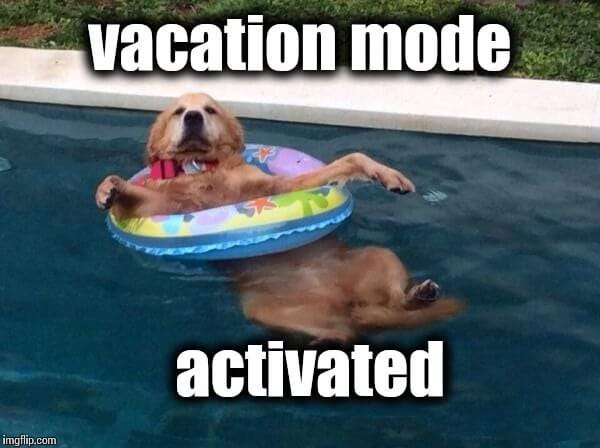



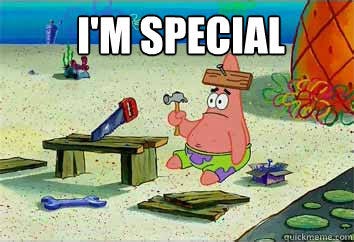
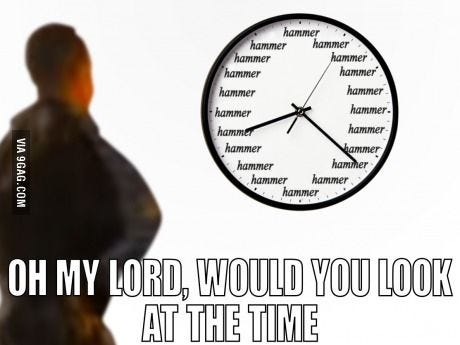





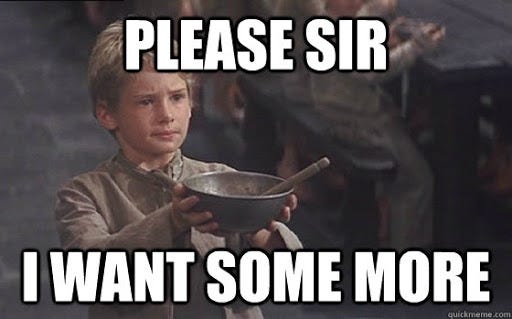

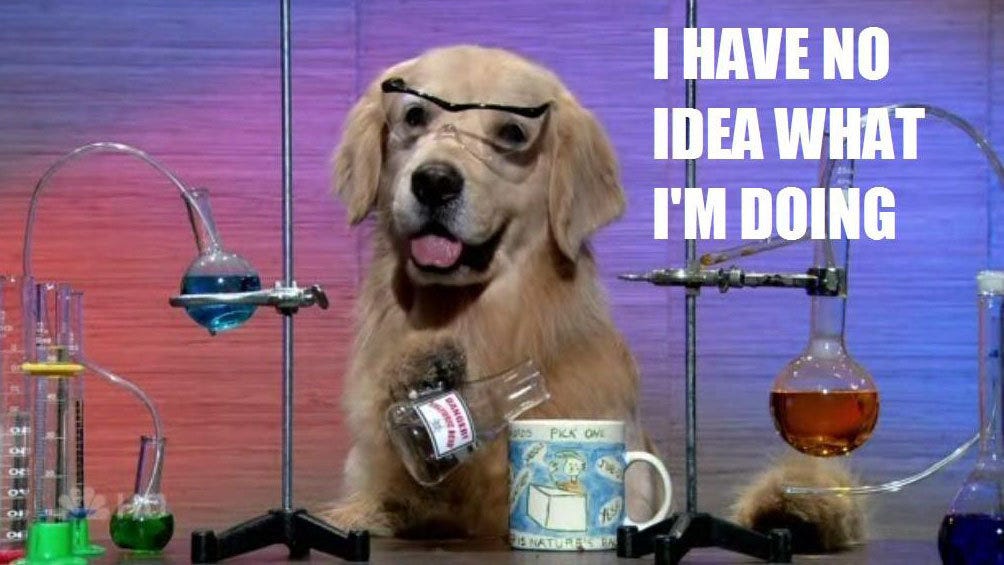





This concept, the "barbell model," is the best "secret" I know and use.
Barbell stuff is worth paying attention to.